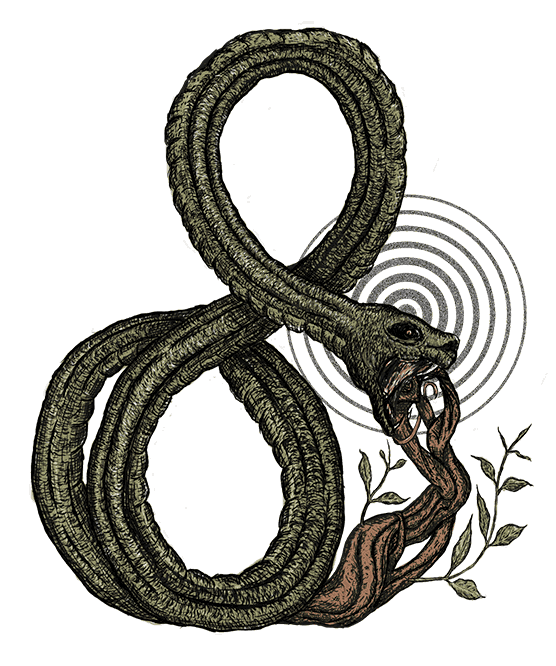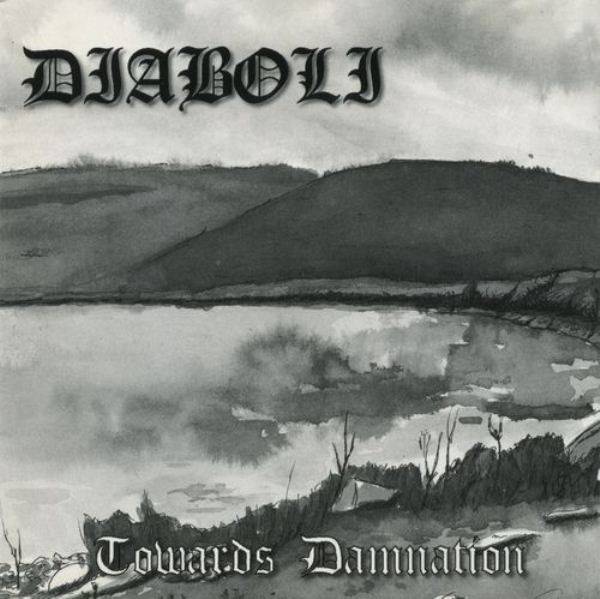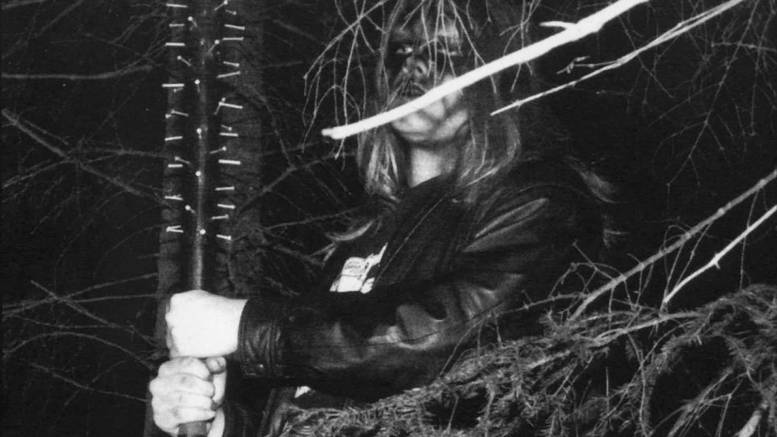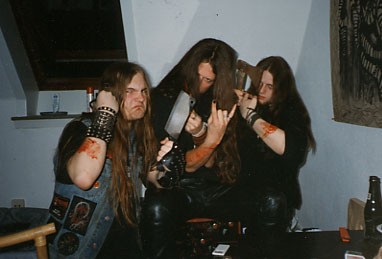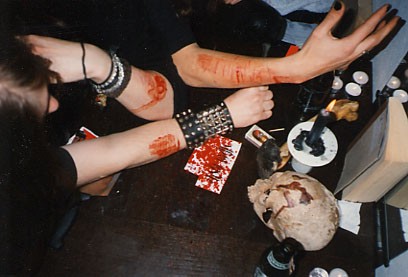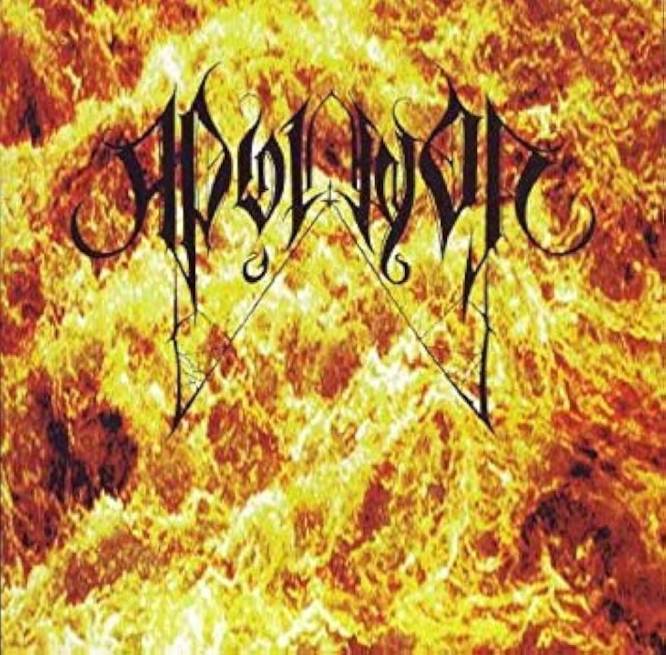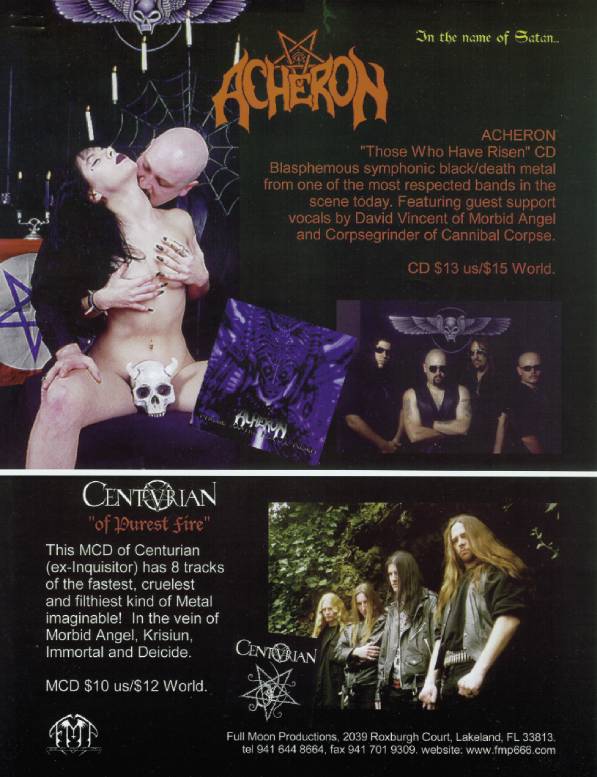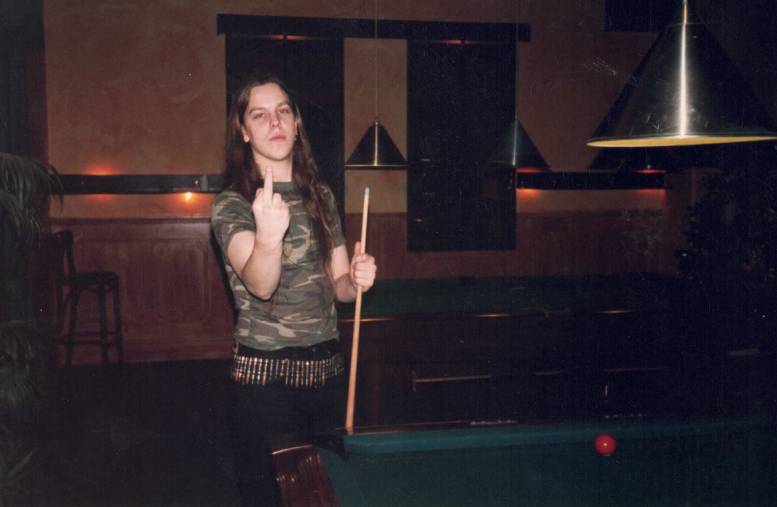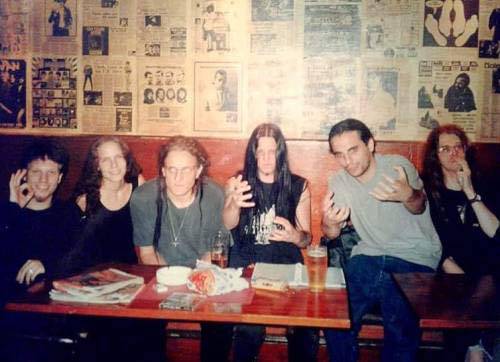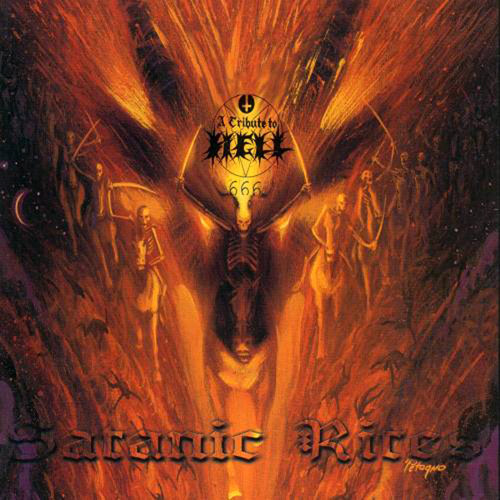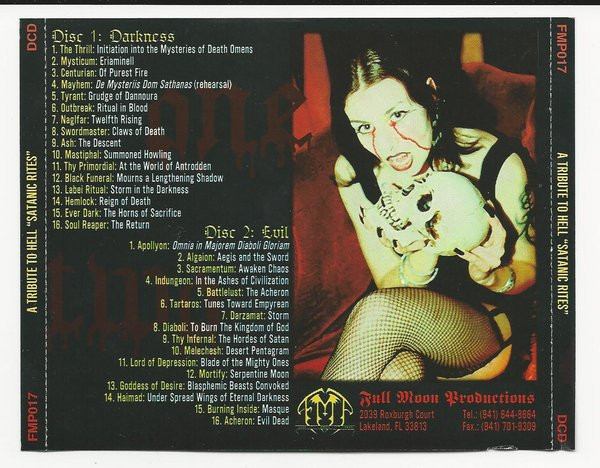Full Moon Productions VI
2025-09-04
by Niklas Göransson
Years in the making, A Tribute to Hell: Satanic Rites stood as the most ambitious statement of Full Moon Productions – a scripture of obscurity and ideology, capturing black metal at the height of its expansion.

JON JAMSHID: With Moonlight Magazine, I figured, ‘Instead of buying ads, why not make a free fanzine to include in every order?’ You’d always hear that for every copy sold, at least ten people ended up reading it. What better way to promote my releases?
In 1996, after retiring Petrified ‘Zine, Jon launched Moonlight Magazine – a brochure-style publication featuring interviews and reviews, printed in 10,000 copies and included with F.M.P. mail-order shipments.
JON: I probably could’ve sold it, but the idea was for this one to serve as a kind of propaganda fanzine. That’s why I didn’t stick with the old name; Petrified had been more about promoting black metal as a whole, whereas I tailored Moonlight to benefit F.M.P. specifically.
This sounds like a cunning plan, if not for the fact that Moonlight only featured two actual F.M.P. bands: MYSTICUM and SWORDMASTER, the latter of whom had already moved on to Osmose. The remaining acts were LIMBONIC ART, CULTUS SANGUINE, BETHZAIDA, FALKENBACH, and DARK FUNERAL.
JON: Those were all signed to labels I collaborated with. I actively promoted bands from Nocturnal Art, Malicious, Avantgarde, Wounded Love, and so forth. The whole point of Moonlight was to support my allies – which, in turn, helped F.M.P. It worked really well, and we got through the entire print run pretty quickly.
The official website of Full Moon Productions, fmp666.com, launched in November 1997. At the time, black metal had a rather modest online presence.
JON: Believe it or not, the F.M.P. site actually went up several years before that. There was this hosting site called Darkwoods or something similar – they reached out and offered to build me a homepage. I told them I had zero interest in internet promotion; I couldn’t imagine black metal being part of the digital world.
Why not?
JON: I just didn’t think underground metal belonged online. Also, I seriously doubted enough computer-savvy people were even into the genre. Promoting through flyers – the old-school way – felt more aligned with the scene’s core values. Shifting to online promotion required a whole new mindset.
Nevertheless, after some discussion, Jon relented and gave his blessing.
JON: They set up an F.M.P. email address, and suddenly I’m getting tonnes of messages, traffic, and unexpected exposure from their site. It caught me completely off guard. But every time I wanted to make any kind of update, I had to ask the webmaster. After a while, I figured I could just do it myself.
Having studied computer science and taken a few programming classes, Jon learned HTML and built the site from scratch. Fmp666.com soon became more than a digital storefront – it featured ‘zine-style content, scene commentary, and personal notes.
JON: I quickly realised the potential in having my own internet platform. I’d post interviews online, and anyone could read them right there; no need to print or distribute anything. I also started doing weekly updates about what was going on at Full Moon Productions… touring news, upcoming releases – that type of stuff.
January 1998 – with FMP015, “Towards Damnation”, DIABOLI became the first Finnish black metal band to release an album through Full Moon Productions.
JON: I’d been corresponding with Petri from DIABOLI for a long time and really appreciated their sound and the direction they were taking. The Finnish scene wasn’t like Norway’s, which had exploded into all this grand, symphonic, melodic stuff.
“Towards Damnation” is indeed a more minimalist take on black metal – cold and barren guitars playing hypnotic riff cycles without leads, broken only by sparse keyboard interludes.
JON: A lot of the bands coming out of Finland were darker, more aggressive and vulgar, which I appreciated. Finnish acts like BEHERIT, IMPALED NAZARENE, BLACK CRUCIFIXION, and BELIAL all had this harsh, nasty edge that set them apart.
DIABOLI were soon followed by APOLLYON, Full Moon Productions’ first Danish collaboration – one literally sealed in blood.
JON: Signing contracts in blood wasn’t a common occurrence, no – the only two bands I remember doing that were APOLLYON and NÅSTROND. Great guys, I actually dropped by the studio in Denmark to watch them record during my trip to Scandinavia the year prior.
Tracked at Borsing Recordings in Århus, APOLLYON’s mini-CD “Diaboli Gratia” was released in 1998.
JON: I had high hopes for that release, and we put a lot of effort into promoting it – more than usual, actually. My idea was to sign a completely unknown band, push hard, and see how far I could take them. But “Diaboli Gratia” performed well below expectations; I only did one pressing, and even then, we didn’t manage to sell through all the copies.
I’m aware of these guys, DENIAL OF GOD, HORNED ALMIGHTY, and a few others – but outside of MERCYFUL FATE and OF THE WAND AND THE MOON, I struggle to think of a Danish band that’s truly moved me. Given how prolific the rest of Scandinavia has been when it comes to metal, that is quite odd.
JON: I never really thought about it until just now, but you’re right: it’s surprising how little metal worth a shit has come out of Denmark. Beyond MERCYFUL FATE and DENIAL OF GOD, not much comes to mind. The APOLLYON guys are in another band now – I’ve heard it’s really good, though I can’t recall the name.
In July 1998, Full Moon Productions released “Those Who Have Risen” – ACHERON’s fifth full-length album and the first Floridian F.M.P. title.
JON: That’s an interesting one, because it didn’t come about through the usual route. See, Moribund was originally set to release the album, but Odin told me they were having financial trouble and couldn’t pull it off. Instead, he asked if I’d be interested in taking it on.
After debuting with WIND OF THE BLACK MOUNTAINS’ “Force Fed into Blasphemy” EP in late 1992, Seattle-based Moribund Records stayed active throughout the following years. Things slowed down in 1997, when their only release was “At the Mountains of Madness” by BLOOD RITUAL.
JON: I went to a show, watched ACHERON perform, and then agreed to do it. Actually, that crazy fucker from WIND OF THE BLACK MOUNTAINS was there, trying to convince me to release his album too. But instead of a normal conversation, he started punching people at random, physically attacking folks, trying to prove how ‘insane’ he was. Pretty intense… and pretty ridiculous.
As it happens, WIND OF THE BLACK MOUNTAINS’ debut album, “Sing Thou Unholy Servants”, ended up being Moribund’s sole release of 1998.
JON: Personally, I was a big ACHERON fan – especially “Rites of the Black Mass” (1991). I also enjoyed talking to Vincent Crowley, their vocalist. He’s sharp, very intelligent, and has this unique way of looking at things. To me, ACHERON were a natural fit for F.M.P.
Within the Tampa death metal hierarchy, would you say ACHERON were considered a prominent band?
JON: Everyone knew of ACHERON, but I think their full-on Satanic stance turned a lot of people off. Despite being one of the earlier bands from the Tampa scene, they didn’t really fit the usual mould. ACHERON always felt a bit outside the death metal norm.
In the fall of 1998, Jon returned to Europe – this time with a longer, more colourful itinerary than the year prior.
JON: That trip wasn’t only about meeting contacts. I’d decided to do an F.M.P. collection tour – travel through Europe and confront people who weren’t paying up. In several cases, I had to literally show up at their homes and threaten them just to get my money.
Jon’s first stop was England, where he’d arranged to meet with Sarah Jezebel Deva, soprano singer in CRADLE OF FILTH. Deva initially contacted Jon to voice displeasure over remarks he’d made about her band, but they eventually became friends.
JON: This guy Neil of Cacophonous Records owed F.M.P. several thousand dollars – wouldn’t pay, wouldn’t even fucking reply. I flew over, met up with Sarah, and we headed to the area Cacophonous were located. On the way there, she said, ‘I’ll wait for you outside.’ She pointed to his window and told me which floor he was on.
JON: I walked over to a phone booth and called him. ‘Neil, this is Jon from F.M.P. – I’m outside your building.’ I watched him pull back the curtain and look out through the window, then said, ‘You need to pay what you owe me; whether it’s in merch or cash, I’m not leaving without it.’
JON: Now, as I got in the elevator, I started panicking a bit. I had no idea what this guy looked like. I’m standing there, sweating, thinking, ‘I’m either going back with my money or I’m getting the shit kicked out of me.’ But I’d committed fully – no fucking way was I walking away empty-handed.
JON: I’m not a big guy – but here’s the thing: if you’re crazy enough to fly to another continent and say, ‘Time to fucking pay’, they’re probably thinking, ‘Who is this lunatic?’ So, the elevator doors opened, and I walked out. That’s when I saw a box sitting outside, along with an envelope. He’d left money and around a hundred CDs. I grabbed everything and went back downstairs.
JON: Sarah asked, ‘Did you have any problems?’ I said, ‘Nope. He just left the stuff outside and bailed.’ Kind of shocking – but if you think about it, he knew he was in the wrong. Afterwards, I went on to Holland, Belgium, and Germany with no issues at all. Then I hit Gothenburg, where Emil Nödtveidt (SWORDMASTER) took me to Dolores Records.
Dolores Records was an independent label, mail-order, and record shop in Gothenburg, Sweden – the hometown of SWORDMASTER.
JON: Emil rang the warehouse intercom and said, ‘Hey, Emil here – can you let me in?’ They buzzed us through. There were six or seven people working in there. I yelled, ‘I’m Jon from Full Moon, and I have come to collect!’ I’d brought a duffel bag and started filling it with merchandise. I walked into the office, looked the guy in the eye, and said, ‘I’m taking this – go fuck yourself’, then left.
JON: But look, it’s not like I wanted to do any of that. The thing is, when one person owes you two grand, someone else three, Cold Meat Industry another $800, and Dolores five thousand – it adds up. Suddenly, you’re looking at $20,000 owed, which is a huge amount for a small label. When you’ve spent a year or two chasing people and nobody’s paying up, what choice do you have?
After his stay in Sweden, Jon went on to Norway. There’s a photo from this trip taken at Elm Street Rock Café in Oslo, showing Mean Malmberg and Cerastes from MYSTICUM, DARKTHRONE’s Fenriz, and a few others.
JON: I’ve got to mention something about that night. Back before DIMMU BORGIR’s debut came out, I was sent an advance. I consulted Mårten (ALGAION), ‘I might sign this band, what do you think?’ He’s like, ‘Don’t. They’re fucking posers.’ I wrote back and told them I wasn’t interested.
Instead, DIMMU BORGIR went on to release their debut album, “For all tid”, through No Colours Records.
JON: Fast forward to Oslo – Shagrath (DIMMU BORGIR) walks in and sits down right across from me. I said, ‘Hey, sorry we didn’t end up working together’, trying to be civil. He shot back some shitty comment, and we got into a heated argument. Then, out of nowhere, Prime Evil from MYSTICUM headbutted him <laughs>. It all happened fast. I even wrote about it on the F.M.P. site.
This anecdote did indeed appear in an autumn 1998 news update on fmp666.com, igniting a torrent of online chatter.
As his final European stop, Jon found himself in Iceland, which at the time was far from the black metal hotspot it is today.
JON: I’m having a hard time recalling the details, but I think I just hung out with some fan of the label who showed me around for a day. So yeah, it was metal-related, but I didn’t meet any bands or do anything scene-specific.
September 1998 saw the conclusion of a massive undertaking: FMP017, “A Tribute to Hell: Satanic Rites”, an ambitious compilation of underground black and death metal. Fellow US label Necropolis Records’ 1995 sampler “Nordic Metal: A Tribute to Euronymous” is probably the closest comparison in terms of ambition, depth, and exclusivity.
JON: Even though we worked with Necropolis, there was definitely a sense of rivalry between us. They had their own approach and kept things pretty secretive, so I didn’t even hear “Nordic Metal…” until months – maybe even a year – after it came out. So no, it didn’t influence me and had no bearing on my decision to put together “A Tribute to Hell…”.
The underlying ideas stemmed from the same place as Petrified ‘Zine: an urge to find dark, mostly unknown bands and put them in the spotlight.
JON: Once my initial enthusiasm faded, it turned into a major logistical headache. Working with one band can be hassle enough – now multiply that by twenty. The project stretched out over several years; not because I was dragging my feet, but due to the difficulties in coordinating so many bands and studios.
log in to keep reading
The second half of this article is reserved for subscribers of the Bardo Methodology online archive. To keep reading, sign up or log in below.
